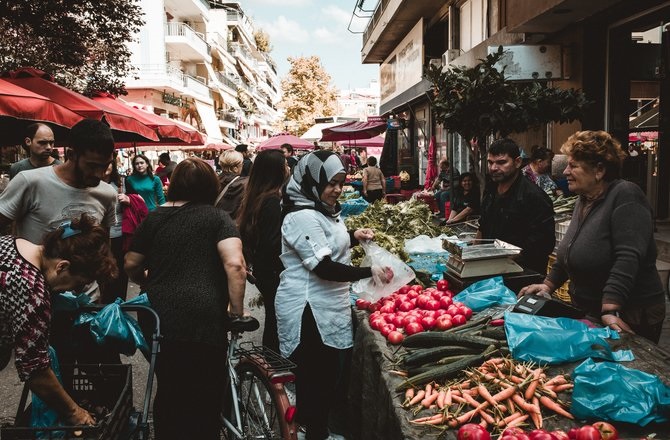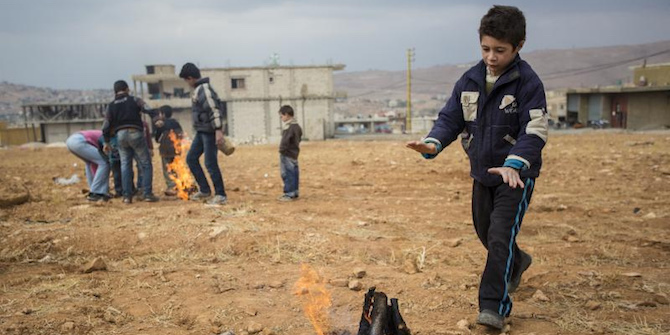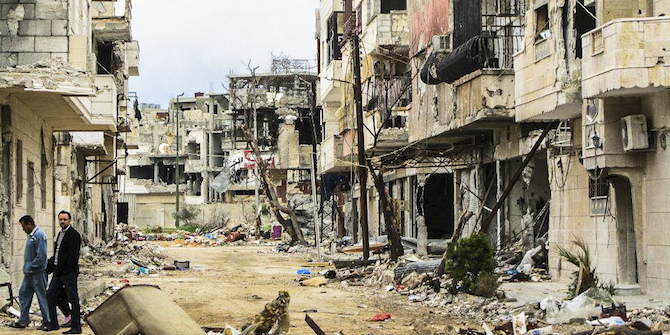by Sarah A Tobin

In 2002, Michel Agier described his experience conducting research in the Dadaab refugee camp. He described how he entered the camp as a “humanitarian envoy”, with the help of Doctors Without Borders. The local police initially showed Agier around, but a refugee who was a local NGO employee and a translator, escorted him during most of his camp visit. Agier discusses his data collection process and outlines different camp-related concerns, including issues relating to rape, camp security, the economic space that flourished within the camp, the proliferation of international NGOs, as well as the transience of foreign staff –whose work and service are at times a mismatch to the local needs and interests of the refugees.
In rereading this article recently, I realised that this prescient piece describes the overwhelming experiences of ethnographers conducting research on the Zaatari and Azraq Syrian refugee camps, and foretells common themes that figure in publications resulting from these camp-focused research projects. I want to examine these dominant topics of ethnographic research more closely, not only with regards to the protracted situation of Syrians, but also in relation to the field of migration studies more generally. I believe that we can improve refugee-related ethnographic research, and move away from the type of research advanced by Agier.
In particular, we need to revisit some of what is perceived as “policy-irrelevant research”, and enhance it through ethnographic methods. In effect, a large portion of research funded through governments, NGOs, the private sector, and increasingly academic institutions, is being done with the explicit aims of producing “relevance” – oftentimes directed at policy makers and ill-defined stakeholders. From grant-funded projects to the REF system, showing “impact” or “relevance” of one’s ethnographic research is growing paramount.
In such policy-specific or “relevant” research, the individuals’ status as refugee oftentimes becomes the defining characteristic, over and above other important aspects of personhood, agency, and action. This framing defines refugees as people who have moved typically once from one “homeland” to another, singular space, sometimes overlooking the multiple migrations and movements of people, the ways in which families are split families across different geographies, their socio-economic linkages, as well as their political allegiances. As such, ethnographic research that focuses on “the refugee” can sometimes be reductive.
Furthermore, I take seriously Oliver Bakewell’s intervention that “policy-relevant research” puts pressure on researchers to prioritise categories, concepts and priorities defined by policy makers and actors in the humanitarian-development nexus. The pressure to produce policy-relevant work oftentimes pushes researchers to focus on particular topics that are dictated by, or fall in line with policy-oriented projects and institutions. In such cases, the latter set the rules and terms of engagement to decide which policy outcomes are preferable. As a result, individuals are erased and ethnography becomes – de facto – an ethnography of institutions and organisations. This reduces ethnographic studies easily and readily to that of bureaucracy, as well as narrow organisational forms of rationalising and classifying information. Rather, ethnography should render visible what is invisible; critique some underlying assumptions and highlight what is taken for granted in social fields. Beyond that, ethnographic accounts of human action must serve to question socially-constructed labels and categories.
In this series:
 Sarah A Tobin, Senior Researcher at CMI, holds a PhD in Anthropology from Boston University (2011). Ethnographically, her work focuses on Islamic piety in the economy and in conditions of displacement, as well as contemporary political life in Jordan. Sarah’s recent books are Everyday Piety: Islam and Economy in Jordan (Cornell UP, 2016) and the co-authored The Politics of the Headscarf in the United States (Cornell UP, 2018). She has been researching Syrian refugees in Jordan since 2014. She tweets at @SarahATobin
Sarah A Tobin, Senior Researcher at CMI, holds a PhD in Anthropology from Boston University (2011). Ethnographically, her work focuses on Islamic piety in the economy and in conditions of displacement, as well as contemporary political life in Jordan. Sarah’s recent books are Everyday Piety: Islam and Economy in Jordan (Cornell UP, 2016) and the co-authored The Politics of the Headscarf in the United States (Cornell UP, 2018). She has been researching Syrian refugees in Jordan since 2014. She tweets at @SarahATobin
This post and others in the series are based on presentations held during a conference organised by the LSE Middle East Centre on 7–8 March 2019, titled ‘Between Institutional Resilience to the Syrian Refugee Crisis and the Resilience of Syrian Refugees’.
In this series:
- Questioning Dominant Refugee Narratives and Research Methodologies by Yasmine Kherfi
- Contested Meanings of Resilience Building: How Great Expectations in Brussels are Dashed in Beirut by Tamirace Fakhoury
- Three Years of the Jordan Compact: The (Gendered) Challenges of Providing Work Permits for Syrian Refugees by Lewis Turner
- Between Vulnerability and Resilience – ‘Refugeeness’ as Political Subjectivity by Jouni Häkli and Kirsi Pauliina Kallio
- Resilience and Relationality: the Agency of Pious Syrian Refugee Women by Umut Ozkaleli






